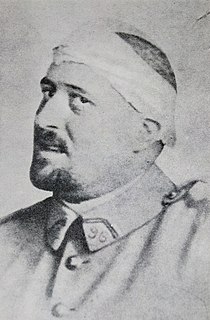A Quote by Arthur Schopenhauer
Virtue is as little to be acquired by learning as genius; nay, the idea is barren, and is only to be employed as an instrument, in the same way as genius in respect to art. It would be as foolish to expect that our moral and ethical systems would turn out virtuous, noble, and holy beings, as that our aesthetic systems would produce poets, painters, and musicians.
Related Quotes
Our actual lives, including our values, our social relations, our self-conceptions, and many of our concepts, are pervasively shaped both by the knowledge and by the fact that we will someday die - that we are subject to extreme temporal scarcity. There is no reason to think that, if we were immortal, the same things would continue to matter to us. We have little or no idea what, if anything, would matter to immortal beings, or even how such beings would think of themselves.
I regret that I must so continually use the word genius, as if that should apply only to a caste as well defined from those below as income-tax payers are from the untaxed. The word genius was very probably invented by a man who had small claims on it himself; greater men would have understood better what to be a genius really was, and probably they would have come to see that the word could be applied to most people. Goethe said that perhaps only a genius is able to understand a genius.
We honor ambition, we reward greed, we celebrate materialism, we worship acquisitiveness, we commercialize art, we cherish success and then we bark at the young about the gentle arts of the spirit. The kids know that if we really valued learning, we would pay our teachers what we pay our lawyers and stockbrokers. If we valued art, we would not measure it by its capacity to produce profits. If we regarded literature as important, we would remove it from the celebrity sweepstakes and spend a little money on our libraries.
Morality is neither rational nor absolute nor natural. World has known many moral systems, each of which advances claims universality; all moral systems are therefore particular, serving a specific purpose for their propagators or creators, and enforcing a certain regime that disciplines human beings for social life by narrowing our perspectives and limiting our horizons.
In a state of tranquility, wealth, and luxury, our descendants would forget the arts of war and the noble activity and zeal which made their ancestors invincible. Every art of corruption would be employed to loosen the bond of union which renders our resistance formidable. When the spirit of liberty which now animates our hearts and gives success to our arms is extinct, our numbers will accelerate our ruin and render us easier victims to tyranny.
I say, 'Get me some poets as managers.' Poets are our original systems thinkers. They contemplate the world in which we live and feel obligated to interpret, and give expression to it in a way that makes the reader understand how that world runs. Poets, those unheralded systems thinkers, are our true digital thinkers. It is from their midst that I believe we will draw tomorrow's new business leaders." --Sidney Harman, CEO Multimillionaire of a stereo components company
Our country, customs, laws, our ambitions, and our notions of fit and fair-all these we never made; we found them ready-made; we but quote from them. What would remain to me if this art of appropriation were derogatory to genius? Every one of my writings has been furnished to me by a thousand different persons, a thousand things; wise and foolish have brought me, without suspecting it, the offering of their thoughts, faculties, and experience. My work is an aggregation of beings taken from the whole of nature. It bears the name of Goethe.
Without poets, without artists, men would soon weary of nature's monotony. The sublime idea men have of the universe would collapse with dizzying speed. The order which we find in nature, and which is only an effect of art, would at once vanish. Everything would break up in chaos. There would be no seasons, no civilization, no thought, no humanity; even life would give way, and the impotent void would reign everywhere.
We [Christians] have the dilemma of using a symbol system that was not made for our worldview, to give our worldview... I think the thing we're waiting for is a genius to come forth who can either make a new symbol system which is still modern, or more properly, as symbol systems don't come overnight, a group of people to modify the symbol systems of our day, so that we can use them for our Christian message without a disadvantage.








































